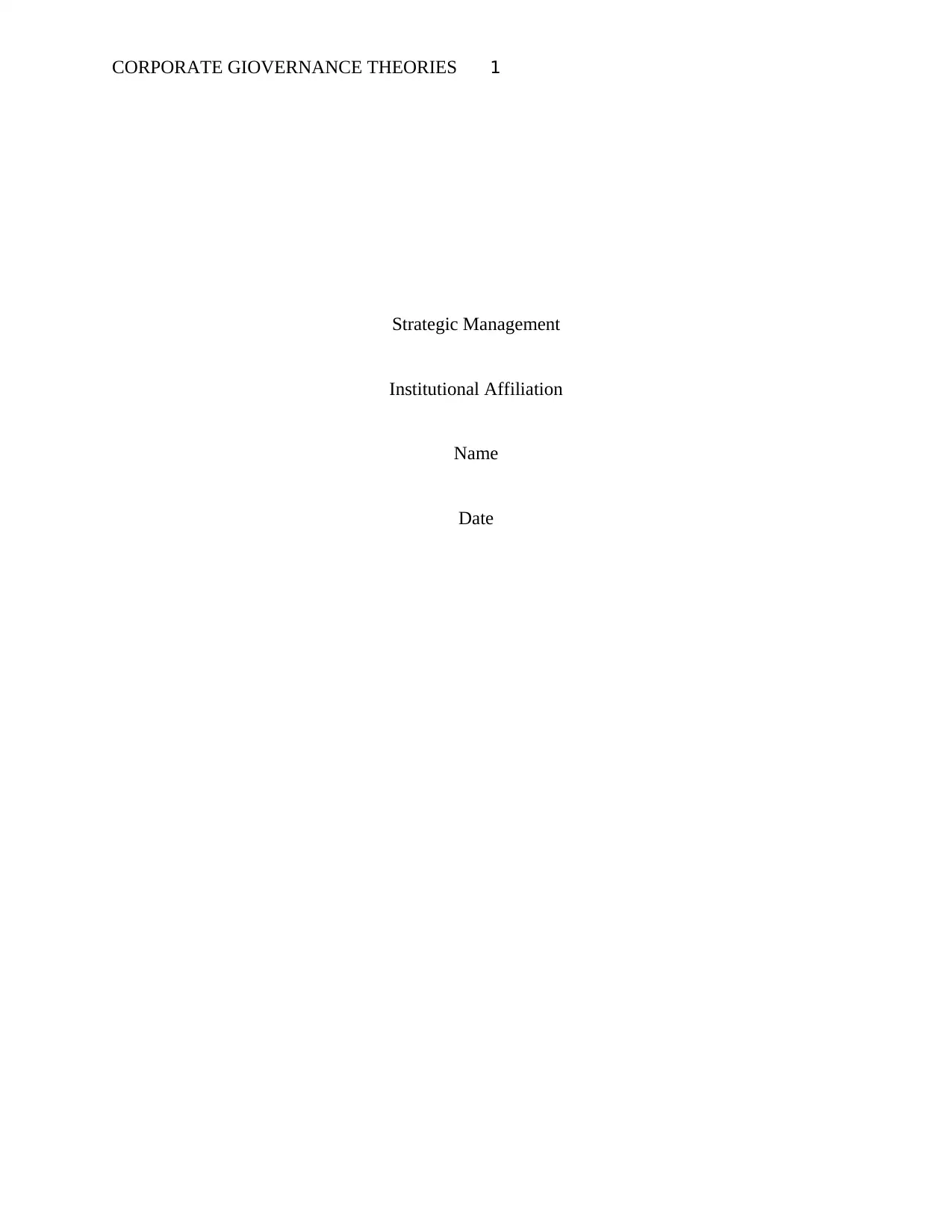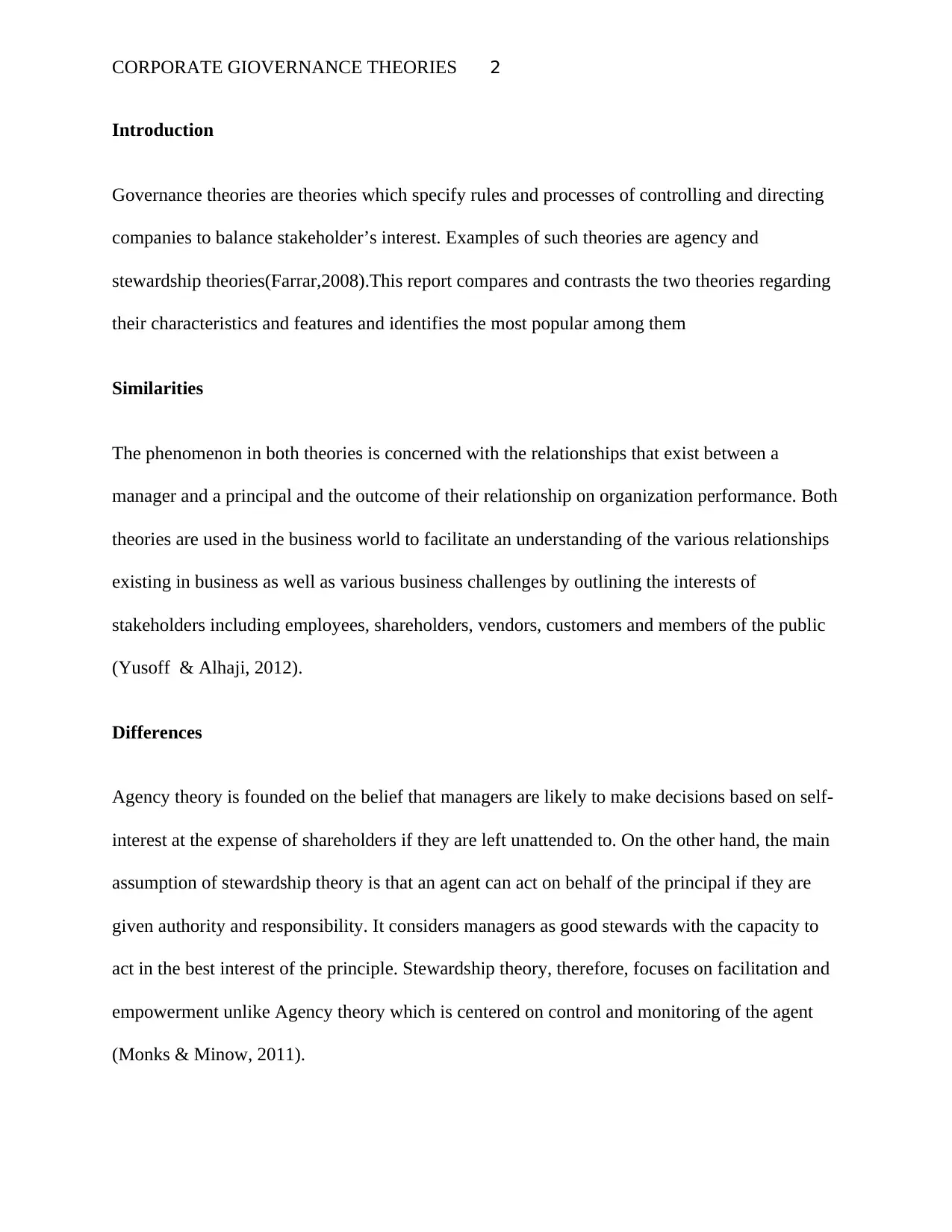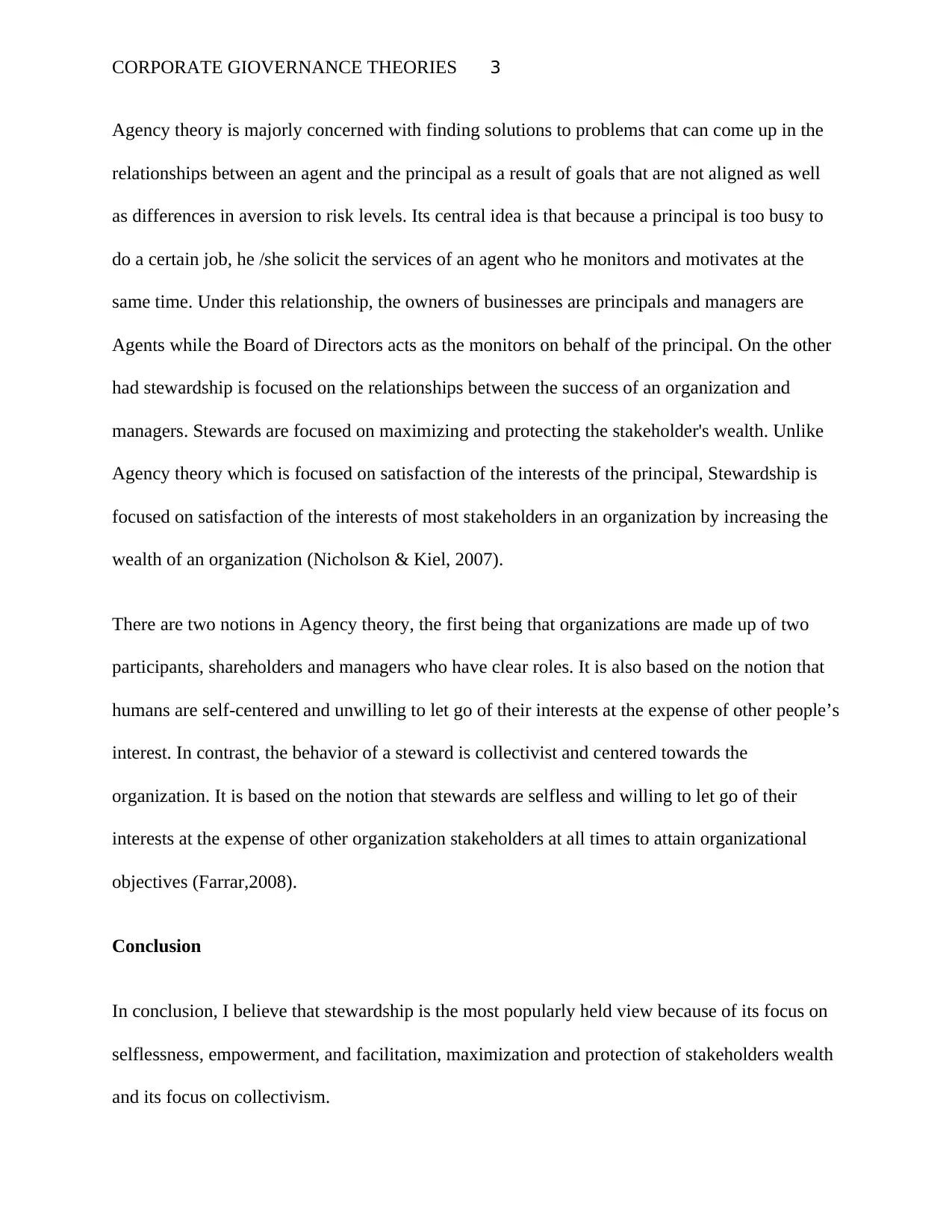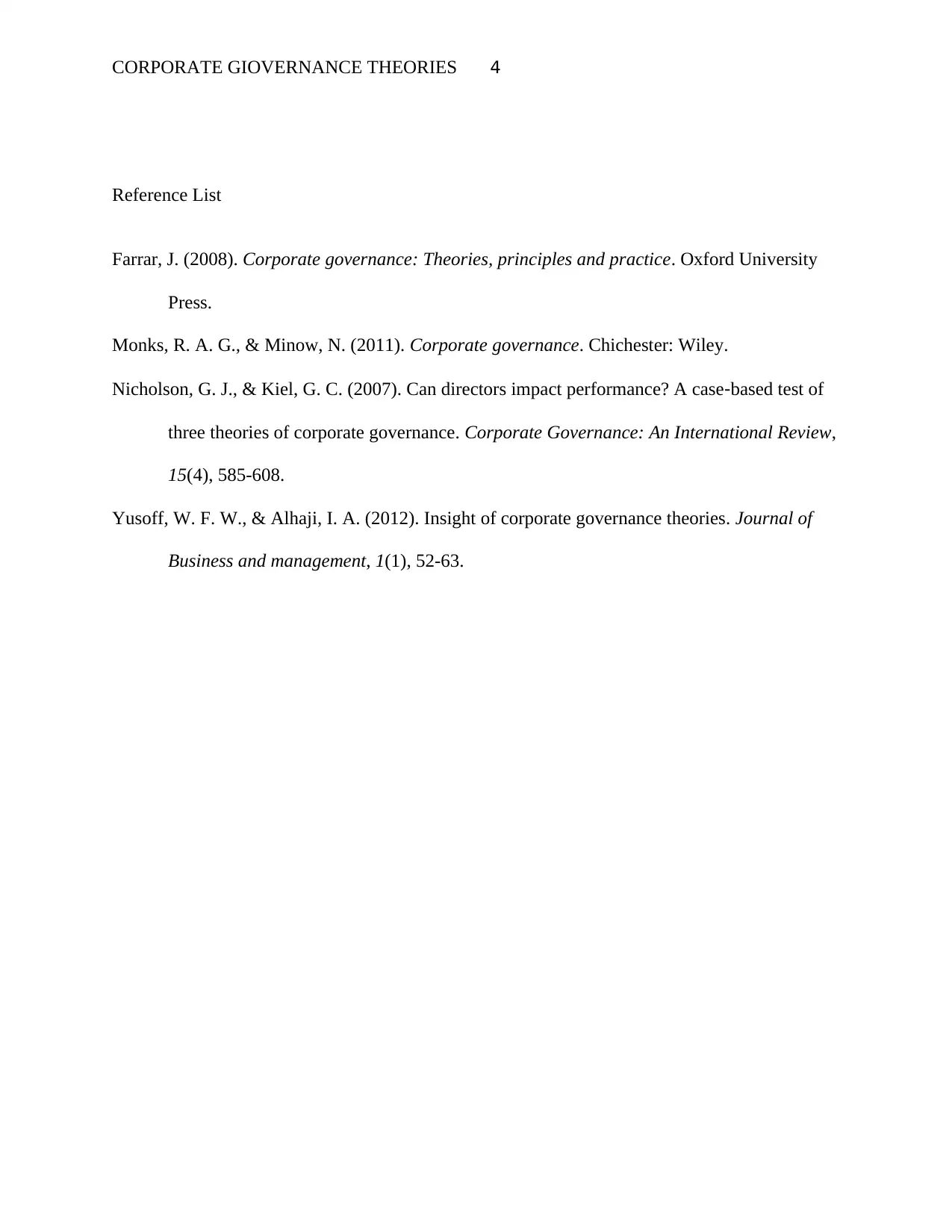Report on Corporate Governance Theories in Strategic Management
VerifiedAdded on 2020/05/04
|4
|706
|126
Report
AI Summary
This report provides a comparative analysis of two prominent corporate governance theories: agency theory and stewardship theory. It begins with an introduction that defines governance theories and their significance in balancing stakeholder interests. The report then delves into a detailed comparison of agency and stewardship theories, highlighting their similarities and differences. Agency theory is presented as focusing on the potential for managers to act in self-interest, necessitating monitoring and control, while stewardship theory emphasizes the managers' role as responsible stewards who prioritize the interests of the principal and stakeholders. The report further explores the assumptions underlying each theory, including differing views on human behavior and organizational structures. Finally, the report concludes by asserting stewardship theory's popularity due to its emphasis on selflessness, empowerment, and wealth maximization for stakeholders. References to support the analysis are also provided.
1 out of 4











![[object Object]](/_next/static/media/star-bottom.7253800d.svg)